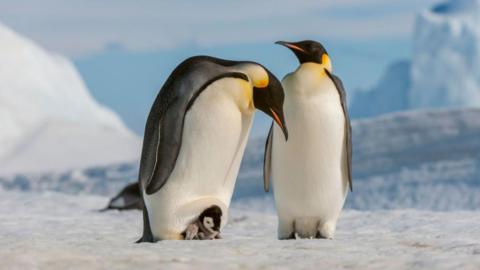This very low winter extent doesn't necessarily mean the Arctic will end up with record conditions throughout 2025, as conditions can change quickly at the poles.
But, with the Arctic warming nearly four times faster than the global average, declines over the coming decades are almost inevitable.
The Arctic is expected to be essentially free of sea-ice at the end of its summer at least once before 2050, according to the UN's Intergovernmental Panel on Climate Change. Some recent studies suggest it could happen sooner.
Declining sea-ice at both poles not only has implications for local wildlife like polar bears and penguins, but also the Earth's climate.
Polar sea-ice has already lost around 14% of its natural cooling effect since the early-to-mid 1980s, as the area of bright, reflective ice has declined, according to a study published last year.
"If you significantly change the sea ice distribution in and around Antarctica, you modify that part of the planet which is actually helping us fight against climate change," said Simon Josey, a professor at the National Oceanography Centre.
Sea-ice also plays an important role in the great ocean conveyor, the mass movement of water that helps distribute heat around the planet and keeps places like the UK and north-west Europe relatively mild.
"If we see another strong winter loss [of Antarctic sea-ice], people are going to start to worry about what it's doing to the ocean circulation," said Prof Josey.
